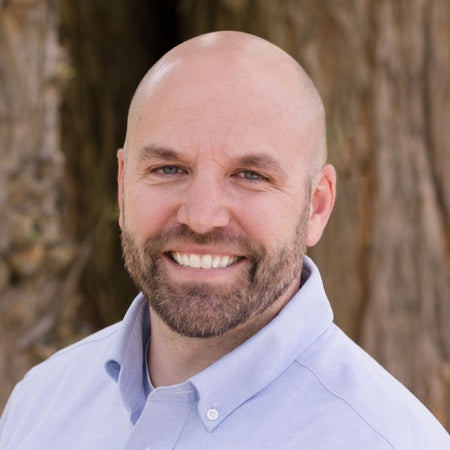Translating mind-shifts into culture shifts
While trying to come up with a way to tell you more about the core work of Vinegrowers, it struck me: “Why come up with anything new? What is there to be said that hasn’t already been said?”
Most of you are reading this email because at some point you read the 2009 book The Trellis and the Vine. I’ve had hundreds (thousands?) of conversations about the book since it came out, with many different people in different positions and from different backgrounds. But nearly every one of them has referred back to the topics of chapter 2 in some way.
The point of that chapter was to get you to take a closer look at everything you do in ministry (personally and church-wide) and “make a conscious shift—away from erecting and maintaining structures and towards growing people who are disciple-making disciples of Christ”. As Tony and Colin wrote, we are “going to suggest that most Christian churches today need to undertake a radical re-evaluation of what Christian ministry really is …”. That is no small claim!
So, to put it simply and straightforwardly, Vinegrowers exists to help you unpack, understand and put flesh on the bones of the eleven ministry mind-shifts of chapter two:
- From running programs to building people
- From running events to training people
- From using people to growing people
- From filling gaps to training new workers
- From solving problems to helping people make progress
- From clinging to ordained ministry to developing team leadership
- From focusing on church polity to forging ministry partnerships
- From relying on training institutions to establishing local training
- From focusing on immediate pressures to aiming for long-term expansion
- From engaging in management to engaging in ministry
- From seeking church growth to desiring gospel growth.
My hope is that the ‘FROMs’ are less true for you today than whenever you first read the book. And that you’re seeing progress in some of the ‘TOs’. Yet even as a consultant for this work myself, looking at those simple statements is an exercise I still need to regularly undertake. When I go back and read chapter 2 again, I’m both grateful and guilty. Grateful to God for how he has used a bit of intentional work in my role as a pastor to raise up more vine workers in our ministry context. And yet somewhat guilty, seeing how easily I get complacent and how far we still have to go.
For example, there was another quote from the book that challenged me when I read it again recently: “We don’t want to create the kind of ministry environment where the only way people relate to one another is by discussing their problems.”
Oh boy! I think I’m working more in that direction than against it. We’ve been trying to get the people in our growth groups to be more ‘authentic’ with one another (though I hate the term). The most natural way that tends to happen is around the struggles and problems we all face. That has to be good, right? Well, the statement above from chapter 2 made me stop and say, “Yes … to a point and if done properly”. I need to keep wrestling with this. How do I raise the value of ‘one anothering’ amongst the group members while at the same time raising the value of thinking of the lost and the weak outside our groups?
This is one of the reasons I believe we can be helpful to you. We are ministers and ministry leaders who are thinking right along with you about these mind-shifts. We’ve made some progress ourselves and we talk to a lot of people and churches that have done the same. We keep working on ways to sharpen our convictions and resource the work towards these biblical ideals.* We’re happy to share ideas we’ve tried and learned along the way. There’s still a long way to go—we’re still wrestling with issues too—and so we’re happy to talk with you as you travel the same path and navigate similar obstacles.
So if you find yourself in a similar place—knowing these ministry mind-shifts are important but caught deciphering what to do next—please start a conversation with us and sign up for a free consultation call today.
Further, we’d love to hear from you which of the eleven mind-shifts you’ve made the most progress on and why. And which ones have been the hardest and why. Just reply to this email and let me know, as it could help us shape some of the future articles we are writing to help you with continual movement along these points.
Going back to my opening paragraph, what is there to be said that hasn’t already been said? Plenty! Over the next few months, our Vinegrower emails will try to give you some specific ideas on how to think about these mind-shifts and some of the ways to make progress. So, keep reading and sharing feedback. Sign up for a consultation so that we can talk in more detail about vine-growing ministry. And, most importantly, keep moving forward with word, prayer and people work.
--
*For example, there is a follow-up book called The Vine Project that furthers the important connection between trellises and vines.






